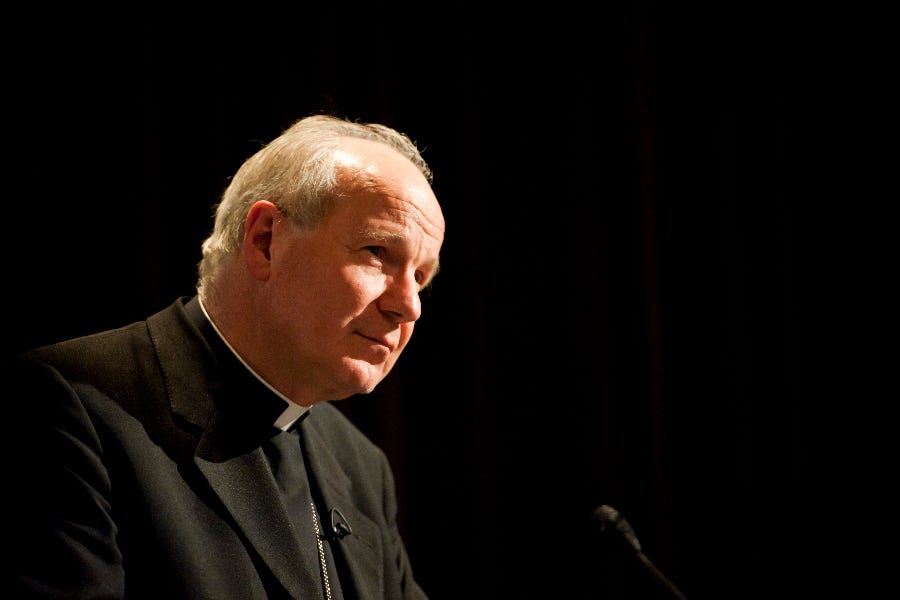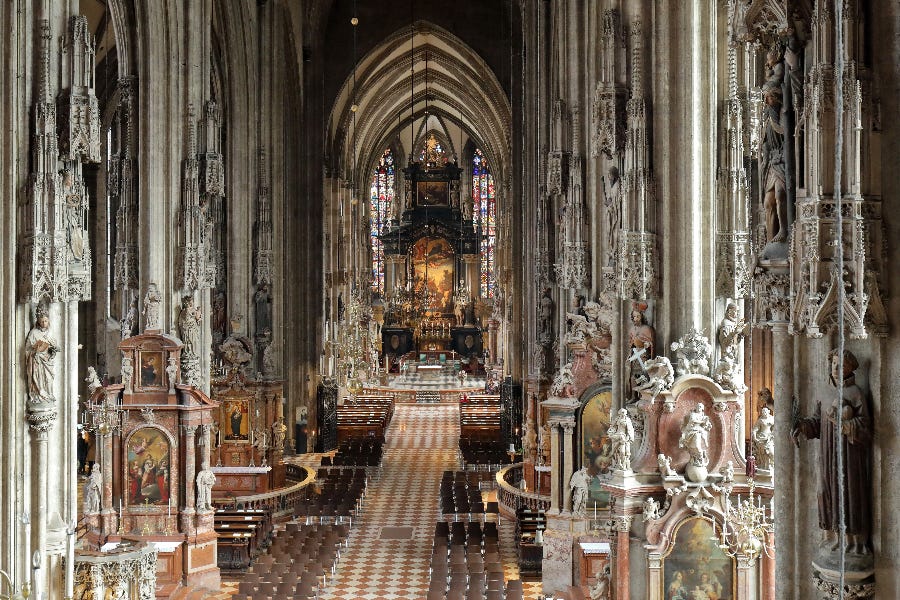Who will be Vienna’s next archbishop?
Here's the form, the runners and the riders
Catholics from across Europe will gather at Vienna’s St. Stephen’s Cathedral Jan. 18 for a farewell celebration for Cardinal Christoph Schönborn.

Schönborn, who has led the Vienna archdiocese since 1995, will turn 80 four days later, losing his right to vote in a papal conclave.
Austrian Catholics expect that, by that point, Pope Francis will have accepted Schönborn’s resignation as Archbishop of Vienna, which he was required to submit on his 75th birthday, back in 2020.
Who is expected to succeed the aristocratic Dominican known worldwide for his theological works?

At Europe’s crossroads
When Schönborn was appointed Archbishop of Vienna, the archdiocese was in deep crisis. His predecessor, Cardinal Hans Hermann Groër, had retired amid accusations of sexual abuse.
A dark cloud hung over the archdiocese as Pope John Paul II asked the 50-year-old Schönborn — with just four years’ experience as a Vienna auxiliary bishop — to take charge.
The Austrian Church continues to reckon with abuse, but Schönborn is widely credited with stabilizing the archdiocese situated at Europe’s crossroads.
The Vienna archdiocese serves around 1.1 million Catholics (down from roughly 1.5 million when he took over), approximately 175,000 of whom attend Sunday Mass.
Austria’s most populous diocese covers not only the capital but also the eastern side of the federal state of Lower Austria. It has more than 1,000 priests, 170 deacons, 242 pastoral assistants, 98 Catholic schools, and 238 monasteries.
Bucking a Europe-wide trend, the archdiocese reported a rise in seminarians in 2020. It has also seen an increase in adult baptisms, including 11 candidates from Afghanistan in 2021.
Vienna is also an important center for Eastern Christians. Schönborn is head of the Ordinariate for Byzantine-Rite Catholics in Austria, which had around 10,000 members at last count.
The next Vienna archbishop won’t necessarily be an outstanding theologian and Catholic power player like Schönborn. But he must be capable of running a large ecclesiastical apparatus and guiding a variegated Catholic community.
Runners and riders
Unlike other dioceses in the German-speaking world that have intricate procedures for nominating bishops, the process of selecting a new Archbishop of Vienna is straightforward (at least on paper).
The pope freely appoints Austria’s bishops on the advice of the papal nuncio, except in the Salzburg archdiocese, where the cathedral chapter elects an archbishop from a list of three candidates proposed by the Holy See.
For Austrian media, the basic question is whether Schönborn’s successor will be Archbishop Franz Lackner, the country’s next most prominent churchman.
Like Schönborn, Lackner is a member of a religious order. He joined the Franciscans in 1985, was named Archbishop of Salzburg in 2013, and succeeded Schönborn as president of Austria’s bishops’ conference in 2020. He represented Austria at the synod on synodality.
While Lackner’s seniority and experience make him an obvious contender, his age could count against him.
In recent years, Pope Francis has taken a distinctive approach to appointing heads of the world’s major metropolitan sees. He has tended to pass over well-qualified figures in their 60s, in favor of fiftysomethings with lower profiles who are seen as being in his pastoral mold.
At 68, Lackner would likely have less than a decade to make his mark on Vienna. A younger candidate might have a quarter-century.
If it’s not Lackner, who else might it be? Austrian commentators mention the following:
Bishop Hermann Glettler, 59, a member of the Emmanuel Community who was appointed Bishop of Innsbruck in 2017.
Bishop Wilhelm Krautwaschl, 61, who has led the sizable Diocese of Graz-Seckau since 2015.
Bishop Benno Elbs, 64, who leads the Diocese of Feldkirch, at Austria’s western tip. Pope Francis named Elbs apostolic administrator of Liechtenstein’s troubled Vaduz archdiocese in September 2023 — a significant mark of trust.
Bishop Ägidius Zsifkovics, 61, who was named the Bishop of Eisenstadt in 2010, at the relatively young age of 47, after more than a decade as bishops’ conference general secretary. He grew up bilingual, speaking German and Croatian.
Beyond the ranks of bishops, these priests are also suggested as potential candidates:
Fr. Karl Wallner, 61, a Vienna-born Cistercian priest based at Heiligenkreuz Abbey, regarded as a center of growth in the Austrian Church.

